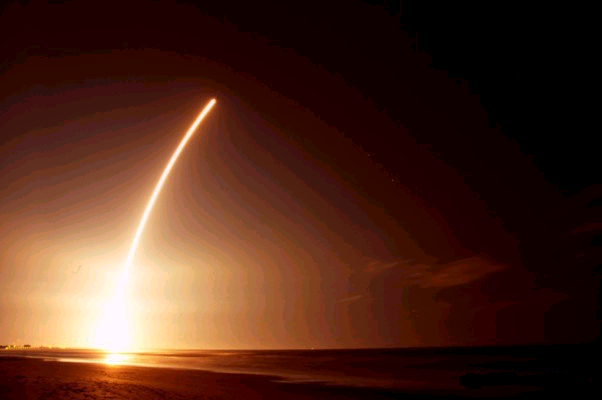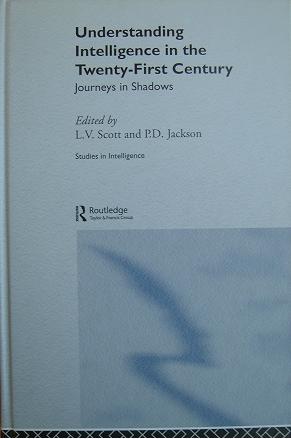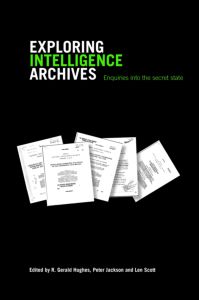

Centre for Intelligence and International Security Studies

Publications



_____________________________________________________________________________________
L.V. Scott & P. Jackson (eds.)
Understanding Intelligence in the Twenty-First Century: Journeys in Shadows (London: Routledge, 2004)
Over the past few
decades, international history and security were
significantly influenced by greater understanding of the
role of intelligence in national security and foreign policy
making. In Britain, much of the work has developed in the
sub-discipline of international history with its
methodological predisposition towards archive-based
research. Advances in archival disclosure, accelerated by
the end of the Cold War, as well as by the changing
attitudes of official secrecy and the work of the
intelligence services, have further facilitated research,
understanding and debate. Recent controversies, including
claims of politicisation of intelligence historiography,
have added additional public saliency to long-standing
academic disputes. The events of September 11 and their
aftermath have shown the value and limits of secret
intelligence and generated fresh controversies for
proponents and critics.
This book examines critically the development of
intelligence studies and assesses its contribution to the
study of international relations. It draws upon the
viewpoints of leading academics, journalists and former
practitioners to explore the way the subject is studies, for
what purposes and with what consequences.
Contents
Journeys in Shadows: Introduction Len Scott and Peter Jackson
Intelligence, International Relations and 'Under-theorisation' Christopher Andrew
German Intelligence History: A Field in Search of Scholars Wolfgang Krieger
NCW, C4ISR, IO and RMA: Toward a Revolution in Military Intelligence? John Ferris
Some Concepts that May be Useful in Understanding the Myriad Forms and Contexts of Surveillance Gary T. Marx
'Who Profited from the Crime?' Intelligence Failure, Conspiracy Theories, and the Case of 11 September Robert Alan Goldberg
Bletchley Park and the Holocaust Michael Smith
Fiction, Faction and Intelligence Nigel West
The Geopolitics of James Bond Jeremy Black
Hunters not Gatherers: Intelligence in the 21st Century Charles Cogan
Secret Intelligence, Covert Action and Clandestine Diplomacy Len Scott
Ethics and Intelligence after September 11 2001 Michael Herman
''As Rays of Light to the Human Soul'? Moral Agents and Intelligence Gathering' Toni Erskine
For more information and purchase options please visit Taylor and Francis/ Routledge on the web
______________________________________________________________________________________________________________________
Intelligence, Crises and Security: Prospects and Retrospects (London: Routledge, 2008)
This collection of essays by leading experts seeks to explore what lessons for the exploitation and management of secret intelligence might be drawn from a variety of case studies ranging from the 1920s to the ‘War on Terror’.
Long regarded as the ‘missing dimension’ of international history and politics, public and academic interest in the role of secret intelligence has continued to grow in recent years, not least as a result of controversy surrounding the terrorist attacks on the United States on September 11 2001.
Intelligence, Crises and Security addresses a range of themes including: crisis management, covert diplomacy, intelligence tradecraft, counterterrorism, intelligence ‘overload’, intelligence in relation to neutral states, deception, and signals intelligence. The work breaks new ground in relation to numerous key international episodes and events, not least as a result of fresh disclosures from government archives across the world.
Contents
Learning from Intelligence History: Lessons for the 21st Century Len Scott and R. Gerald Hughes
Diplomatic Signalling and Intelligence during Crises: The Russo-Turkish War (1877-78), the Chanak Crisis (1922) and the Munich Crisis (1938) John Ferris
A Major Operation: The Clandestine Networks of the CIA in Western Europe Daniele Ganser
Britain and the Iraqi WMD Intelligence Failure Anthony Glees and Philip H.J. Davies
From Covert Diplomacy to Covert Action: Britain and the Yemen Civil War,1962-65 Clive Jones
The Bush
Administration and Iraq: The Mother of Intelligence Failures
The Western Secret Services, the East German Ministry of State Security and the Building of the Berlin Wall Paul Maddrell
Intelligence since Iraq: Overload in an Open-Source World Alfred Rolington
Response to Strategic Weakness: Egyptian Deception in the Yom Kippur War Yigal Sheffy
Crisis Management in Colonial States: Intelligence and Counter-Insurgency in Morocco and Syria after the First World War Martin Thomas
Intelligence and Neutrality: The Case of Switzerland Neville Wylie
R. Gerald Hughes, Peter Jackson and Len Scott (eds)
Exploring Intelligence Archives: enquiries into the secret state (London: Routledge, 2008)
'An ideal introduction to the serious study of secret intelligence and the use made of it over the last century: well-chosen case studies with key documents and stimulating commentary. Essential reading for every intelligence studies course.' Professor Christopher Andrew, University of Cambridge
Click here for a review of Exploring Intelligence Archives
This edited volume brings together many of the world's leading scholars of intelligence with a number of former senior practitioners to facilitate a wide-ranging dialogue on the central challenges confronting students of intelligence.
The book presents a series of documents, nearly all of which are published here for the first time, accompanied by both overview and commentary sections. The central objectives of this collection are twofold. First, it seeks to build on existing scholarship on intelligence in deepening our understanding of its impact on a series of key events in the international history of the past century. Further, it aims to explore the different ways in which intelligence can be studied by bringing together both scholarly and practical expertise to examine a range of primary material relevant to the history of intelligence since the early twentieth century.
Contents
Introduction: Enquiries into the ‘Secret State’ Peter Jackson
‘Knowledge is never too dear’: Exploring Intelligence Archives R. Gerald Hughes and Len Scott
British SIGINT Decrypts on London Naval Conference, 1930 Andrew Webster, John Ferris and Peter Mauch
French Military Intelligence Responds to the German Remilitarisation of the Rhineland, 1936 Peter Jackson and Martin Alexander
The Creation of XX Committee, 1940 Len Scott and John Ferris
The Creation of a Vietnamese Intelligence Service, 1946-50 Christopher Goscha, David Marr and Merle Pribbenow
The Interrogation of Klaus Fuchs, 1950, Michael Goodman and David Holloway
The CIA and Oleg Penkovsky, 1961-2, Charles Cogan and Len Scott
American and British Intelligence on South Vietnam, 1963, Andrew Priest and R. Gerald Hughes
British Intelligence on the Arab-Israeli Military Balance, 1965 James Vaughan and Yigal Sheffy
A KGB View of CIA Activity against the Soviet Bloc, 1983, Paul Maddrell and Matthias Uhl
A Conversation with Former DCI William E. Colby: Spymaster during the ‘Year of the Intelligence Wars’ Loch K. Johnson with commentary from Rhodri Jeffreys-Jones
The Butler Report, Peter Jackson, Robert Jervis and Loch K. Johnson